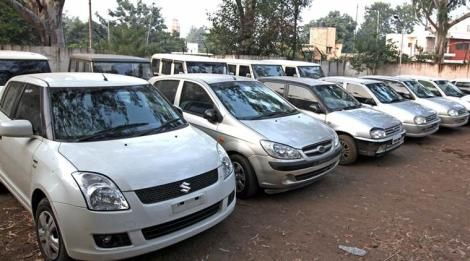As the country faces unprecedented times owing to the high cost of living, Kenyans continue to lose multi-million vehicles and other property to auctioneers.
Advertisements for vehicles worth millions of shillings have permeated local dailies in recent weeks with apartments and cars listed for auction.
In particular, local auctioneers published a list of 88 cars, alongside their owners, their make, registration numbers, and the location where they will be put on auction.

Interested buyers were advised to verify all the details of the motor vehicles as they were not warranted by the auctioneer.
The sale of the vehicles was subject to a reasonable price according to the highest bidder and was also subject to the initial reserve price.
In addition, all interested buyers would have to provide cash at the fall of the hammer as no mobile money transactions will be allowed.
The vehicles listed include Subaru Forester, Toyota Hiace, Nissan Juke, King long Hatchback, Toyota Land Cruiser and Toyota LiteAce.
Others include Nissan March, Toyota Probox, Mitsubishi Outlander, Toyota Regius, Toyota Sienta, Honda Stepwgn, Nissan Tiida, Toyota Vitz and Nissan X-Trail.
In another advert, interested bidders are required to pay a refundable deposit of Ksh100,000 for each vehicle in form of a banker’s cheque to obtain a bidding number.
“The declared purchaser must deposit 25 percent of the purchase price by the close of business auction day and the balance paid within seven days from the auction date, failure to which the money received including the deposit will be forfeited,” one of the adverts read in part.
Apart from motor vehicles, residential properties, agricultural farms, manufacturing, construction, and farm machines were also put up for sale.
In the recent past, auctioneers’ hammers have fallen on Kenyans’ properties, mainly attributed to the tough economic times with most of the victims being unable to meet their financial obligations.
During a previous interview with Kenyans.co.ke, economist Professor XN Iraki explained that Kenyans could avoid landing in huge debt by only taking loans when necessary and investing in diverse portfolios when taking business loans.
“Most Kenyans do not know that they can insure loans such that if they default on any credit, the insurance pays up. The government can also step in to guarantee the loans,” he revealed.

Source: kENYANS.CO.KE











